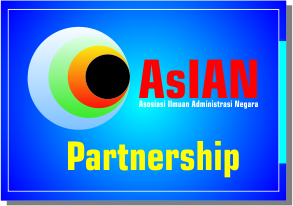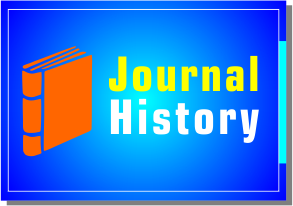Efektivitas Pelaksanaan Program Sembako Dalam Pengentasan Kemiskinan di Kecamatan Medan Belawan
DOI:
https://doi.org/10.31334/transparansi.v5i1.1753Keywords:
Effectiveness Poverty, Sosial Assistance, Basic Food Program,Abstract
Poverty in Indonesia continues to increase, especially since the COVID-19 pandemic. So that it becomes a problem that needs to be solved by the Indonesian government, one of which is with the social assistance of the Basic Food Program. Social assistance programs are programs where local governments provide financial assistance to communities that are not sustainable. The purpose of this study was to determine the effectiveness of the Basic Food Program in alleviating poverty in Medan Belawan District. The research method used is a case study with a qualitative descriptive approach. Data collection techniques used primary and secondary data through in-depth interviews and documentation studies, then document analysis. The sample selection used purposive sampling technique so that several informants were obtained, namely: Medan City Social Service, Regional Coordinator of the Basic Food Program, District Social Workers, E-Warong, Head of Environmental Groups and Beneficiary Families. The results of this study reveal that the implementation of the Basic Food Program is still not effective based on the indicators used, namely resource approach, process approach, and goals approach. Although the Basic Food Program provides convenience for Beneficiary Families, there are still many things that need to be improved to make it more optimal and effective.References
Damayanthi, I. A. S., Supriliyani, N. W., & Wismayanti, K. W. D. (2021) Implementasi Program Bedah Desa Sebagai Upaya Pengentasan Kemiskinan Di Kabupaten Klungkung (Studi Kasus Di Desa Selat, Kecamatan Klungkung). Vol 1 No 01 : Ilmu Administrasi Negara.
Gustin, G. (2019). Analisis Kebijakan Transformasi RASTRA Menjadi BPNT Sebagai Upaya Penanganan Kemiskinan. Mawa'izh: Jurnal Dakwah Dan Pengembangan Sosial Kemanusiaan, 10(2), 376-397.
Hermawati, I., & Winarno, E. Persepsi Keluarga Penerima Manfaat Tentang Program Pengentasan Kemiskinan Di Indonesia Beneficiary Family Perceptions On The Poverty Alleviation Programs In Indonesia.
Moleong, Lexy J. 2015. Metode Penelitian Kualitatif. Bandung:Remaja Rosdakarya. Nawawi, Hadari.1995. Metode Penelitian Bidang Sosial. Yogyakarta: Gadjah
Patton, Michael Quinn. 2009. Metode Evaluasi Kualitatif. Yogyakarta: Pustaka Pelajar.
Rachman, B., Agustian, A., & Pangan, B. K. (2019). Efektivitas dan perspektif pelaksanaan program beras sejahtera (Rastra) dan bantuan pangan non-tunai (BPNT).
Sitanggang, B. (2014). Implementasi kebijakan penyaluran hibah dan bantuan sosial kemasyarakatan di Kabupaten Kubu Raya (Doctoral dissertation, Tanjungpura University).
Sugiyono. 2013. Metode Penelitian Pendidikan Pendekatan Kuantitatif, Kualitatif, dan R&D. Bandung: Alfabeta.
Zega, E. L. C. (2020). Peranan Kepala Desa Dalam Mendistribusikan Bantuan Sosial Kepada Masyarakat Yang Terdampak Covid-19 secara Berkeadilan Di Desa Maziaya Kecamatan Lotu Kabupaten Nias Utara.
Downloads
Published
Issue
Section
License

This work is licensed under a Creative Commons Attribution-ShareAlike 4.0 International License
Please find the rights and licenses in Transparansi : Jurnal Ilmiah Ilmu Administrasi By submitting the article/manuscript of the article, the author(s) agree with this policy. No specific document sign-off is required.
- License
The commercial use of the article will be governed by the Creative Commons Attribution license as currently displayed on Creative Commons Attribution-ShareAlike 4.0 International License.
2. Author(s)' Warranties
The author warrants that the article is original, written by stated author(s), has not been published before, contains no unlawful statements, does not infringe the rights of others, is subject to copyright that is vested exclusively in the author and free of any third party rights, and that any necessary written permissions to quote from other sources have been obtained by the author(s).
3. User Rights
Transparansi : Jurnal Ilmiah Ilmu Administrasi spirit is to disseminate articles published are as free as possible. Under the Creative Commons license, Transparansi : Jurnal Ilmiah Ilmu Administrasi permits users to copy, distribute, display, and perform the work for non-commercial purposes only. Users will also need to attribute authors and Transparansi : Jurnal Ilmiah Ilmu Administrasi on distributing works in the journal and other media of publications.
4. Co-Authorship
If the article was jointly prepared by more than one author, any authors submitting the manuscript warrants that he/she has been authorized by all co-authors to be agreed on this copyright and license notice (agreement) on their behalf, and agrees to inform his/her co-authors of the terms of this policy. Transparansi : Jurnal Ilmiah Ilmu Administrasi will not be held liable for anything that may arise due to the author(s) internal dispute. Transparansi : Jurnal Ilmiah Ilmu Administrasi will only communicate with the corresponding author.
5. Miscellaneous
Transparansi : Jurnal Ilmiah Ilmu Administrasi will publish the article (or have it published) in the journal if the article’s editorial process is successfully completed. Transparansi : Jurnal Ilmiah Ilmu Administrasi editors may modify the article to a style of punctuation, spelling, capitalization, referencing and usage that deems appropriate. The author acknowledges that the article may be published so that it will be publicly accessible and such access will be free of charge for the readers as mentioned in point 3.
Every accepted manuscript should be accompanied by "Copyright Transfer Agreement"prior to the article publication.











